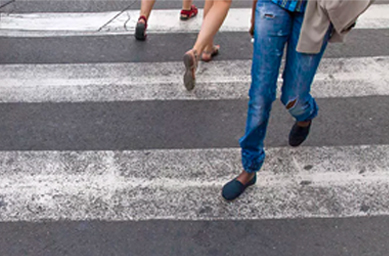As of Monday, March 30, 2020, the Orlando Sentinel reported that there were nearly 5,500 confirmed cases of COVID-19 in the state, with 63 confirmed coronavirus-related deaths. Noting that more than half of Florida’s coronavirus cases were located in Broward, Miami-Dade, and Palm Beach Counties, Governor Ron DeSantis announced that he will be enacting a more unified “safer at home” order for South Florida, while cities throughout the state have already ordered stay-at-home policies to protect their citizens.
At Todd Miner Law®️, the safety and health of our community is paramount. As part of our commitment to help protect our clients, attorneys, staff, and community as a whole, we’ve compiled helpful, fact-based information from the World Health Organization (WHO) and the Centers for Disease Control and Prevention (CDC). Keep reading to learn how you can keep yourself and your loved ones safe.
COVID-19 Symptoms
First and foremost, it is important that you know the signs of COVID-19 so that you can determine if and when you should be tested for the virus. Note that these symptoms can appear anywhere from 2 to 14 days after an individual is exposed to the virus.
According to the CDC, symptoms of the novel coronavirus include:
- Cough
- Fever
- Shortness of breath
The CDC also advises that you should seek medical attention if you or a loved one develops emergency warning signs of COVID-19.
These signs include:
- Difficulty breathing
- Blue lips or face
- Chest pressure or pain that does not go away
- Unexplained confusion
- Inability to arouse
This is not a complete list; the CDC advises that you contact your doctor if you develop any concerning symptoms.
Preventing COVID-19
According to the World Health Organization (WHO), most people who contract COVID-19 will experience mild symptoms and will recover. However, it is important that you take care of your health and look after the well-being of others in order to help prevent the spread of COVID-19.
The WHO provides the following tips for helping prevent COVID-19:
- Wash your hands frequently and thoroughly, using either soap or an alcohol-based hand sanitizer
- Keep at least three feet of distance between yourself and others (the CDC recommends staying at least six feet’s distance from other people whenever possible)
- Avoid touching your face—including your eyes, nose, and mouth—as much as possible
- Practice good respiratory hygiene—cover your sneezes and coughs with a tissue or with your bent elbow
- If you feel ill or have coronavirus symptoms—such as a cough, fever, or trouble breathing—contact your doctor early on and follow their advice
- Call in advance before visiting your doctor if you believe you have COVID-19; this allows them to prepare for your arrival
Additionally, the CDC recommends that you stay home if you feel sick, only leaving to seek medical care. If you must leave your home or care for someone who is ill, wear a face mask and wash your hands frequently with warm water and soap or a hand sanitizer containing at least 60% alcohol.
COVID-19 Myths & Misinformation
With so much misinformation circulating online and across social media, the WHO has compiled a list of COVID-19 myths to help people stay as safe and healthy as possible.
Some of these myths include:
- You can’t contract COVID-19 in hot, humid climates: FALSE! According to all available evidence, the novel coronavirus can and has spread in all areas, regardless of climate.
- You can’t contract COVID-19 in areas with ice or snow: FALSE! Again, evidence has shown that the novel coronavirus can be contracted in all climates.
- The novel coronavirus only affects the elderly and those with underlying conditions: FALSE! Anyone of any age or any degree of health can contract COVID-19.
- Taking a hot bath will prevent/kill the coronavirus: FALSE! When not feverish, the human body remains at a fairly consistent temperature. Taking a hot bath can actually be dangerous, as you could unintentionally burn your skin.
- The coronavirus can be transmitted through mosquito bites: FALSE! There is no current evidence that shows that COVID-19 is transmitted through mosquito bites.
- Hand dryers can kill the coronavirus: FALSE! There is zero evidence that hand dryers are effective in killing COVID-19.
- Ultraviolet (UV) lamps can kill the novel coronavirus: FALSE! UV lamps are not effective at killing the novel coronavirus and can actually cause skin irritation and/or damage.
- Rinsing your nose frequently with saline can help prevent COVID-19 infection: FALSE! There is no evidence that rinsing your nose with saline will prevent COVID-19 infection.
- Pneumonia vaccines work against the novel coronavirus: FALSE! There is currently no vaccine for the novel coronavirus, and pneumonia vaccines will not work against COVID-19.
- Eating garlic can help prevent COVID-19 infection: FALSE! While garlic may contain some antimicrobial properties, there is zero evidence that is protects against the novel coronavirus.
In addition to these myths, the WHO has dispelled other myths about the novel coronavirus and provided accurate information regarding how COVID-19 spreads, how it can be prevented, and what to do if you or someone you care about is sick. We encourage you to visit both the WHO’s official website and the CDC’s official website for more information.
Committed to the Well-Being of Our Community
These are unprecedented times, and here at Todd Miner Law®️, we are committed to continuing to serve as a trusted resource for those in need. The health and safety of our community is our highest priority and, as always, we are committed to serving our community and working together to successfully navigate this uncertain time.







